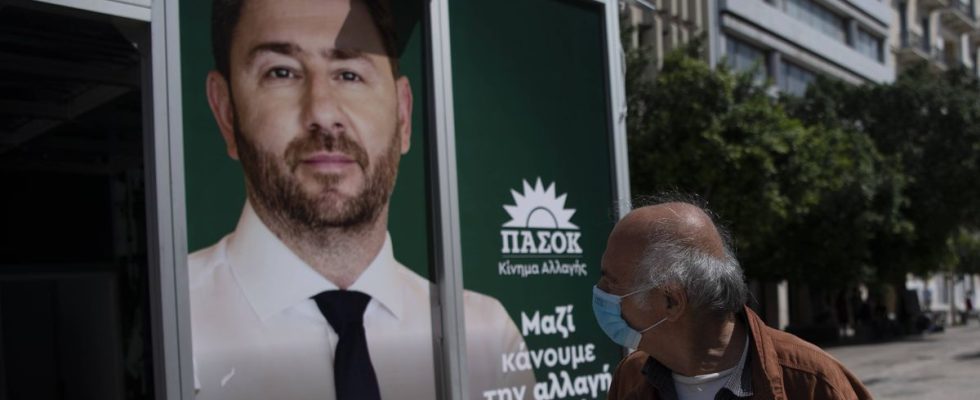The former Prime Minister against the current one. The poster at the top of the legislative elections in Greece, which are held on Sunday, could have everything from a political blockbuster. But the passion is absent among voters. “I expect nothing from this election. Whoever wins, our lives will not change the day after the election, summarizes Nikos Kalaitzidis, a gas station attendant in Thessaloniki. At 32, he says he is “disappointed by the parties in power”.
In the campaign, the outgoing head of government and leader of New Democracy, Kyriakos Mitsotakis, has continued to highlight his economic record: return to growth (5.9% in 2022), surge in tourism and drop in unemployment. after years of crisis and bailouts at the cost of heavy sacrifices for many Greeks. But the rise in the cost of living and soaring energy prices top the concerns of voters tested by inflation that has come close to 10% in 2022.
Skyrocketing cost of living
In Patras, the owner of a tavern, Kyriakos Bazaroglou, 50, does his accounts. “In 2019 a kebab cost me 45 cents (to make) and now it costs 1.70 euros. I can’t sell it for 4 euros” to customers, he explains. It is in this same large port of the Peloponnese that the leader of the left Syriza and former Prime Minister (2015-2019), Alexis Tsipras, held a final campaign rally on Friday before Sunday’s legislative elections.
In front of his troops waving red or yellow flags, he predicts the end of the “nightmare” endured during the four years of the mandate of the outgoing right-wing Prime Minister. But a stone’s throw from the rally, optician Vassilis Kalyvas, 55, has few illusions despite his wish to see a government that “defends the interests of the people. And helps the economy grow.” “From what I see, this is not the case,” he laments. “Judging by the conversations, people are disappointed” by the left and the right, he assures.
Record abstention in sight
Chrysa Papadimitriou, a 43-year-old unemployed woman, also notes “indifference” among most voters, uninterested in a campaign that many observers consider sluggish. “You don’t hear political discussions like you used to and most people avoid talking openly about who they’re going to vote for,” she said.
In Athens, Stavroula, 31, who does not wish to give her last name, decided that on Sunday she would not travel to her hometown in the Peloponnese to vote. ” What’s the point ? Politicians coax us in with promises they won’t keep.” In 2019, the abstention rate was already 42%. Only one in four people between the ages of 17 and 24 voted, according to Maria Karaklioumi, a political analyst for polling firm RASS. This time, abstention could even prove to be even stronger among the 440,000 young people called to the polls for the first time.
The centre-right daily Ta Nea also warned on Saturday of the dangers of abstention. “Anyone who does not vote cannot have an opinion on how the parties fulfill their role”, judges the newspaper in an editorial.
While this campaign, anticipated following a train disaster at the end of February, took place in the shadow of that of the big neighbor thing with which Greece regularly maintains acrimonious relations, Ta Nea noted on Saturday: “If we have something to to envy in the elections in Turkey is their very high turnout”.

